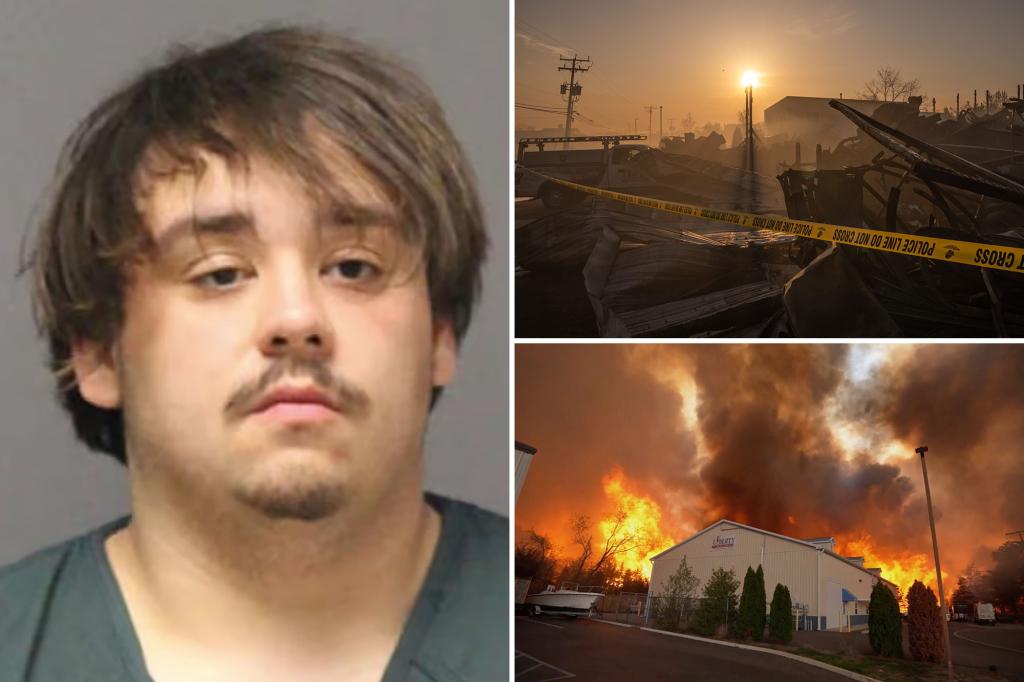AOC’s Brother Responds to Fentanyl Trafficking Rumors: ‘Don’t Make Me Sue’
Gabriel Ocasio-Cortez, the brother of Congresswoman Alexandria Ocasio-Cortez (AOC), has vehemently denied allegations linking him to a $1.2 million fentanyl trafficking operation. In a strongly worded statement, he threatened legal action against those spreading what he calls “baseless and defamatory” claims. The rumors, which surfaced last week on fringe social media platforms, have gained traction among conservative commentators, prompting Ocasio-Cortez to address them publicly for the first time.
The Origins of the Controversy
Unverified reports began circulating on alt-right forums last Tuesday, alleging Gabriel Ocasio-Cortez was connected to a major fentanyl distribution network in New York. The claims, which included doctored screenshots of supposed court documents, quickly spread to larger platforms like Twitter and Facebook. By Friday, the story had been amplified by several high-profile conservative accounts with millions of followers.
“This is textbook character assassination,” said Dr. Emily Sanchez, a misinformation researcher at Columbia University. “We’re seeing a pattern where family members of progressive politicians become targets of coordinated disinformation campaigns. The playbook involves taking grain of truth—maybe a distant association or common name—and weaving an elaborate fiction around it.”
Gabriel Ocasio-Cortez’s Strong Rebuttal
In his statement released through legal representatives, Ocasio-Cortez called the allegations “not only false but dangerous.” He emphasized that he has no criminal record and has never been involved with any drug-related activities. The 32-year-old financial analyst works for a nonprofit organization focused on affordable housing initiatives in the Bronx.
“Let me be crystal clear: these lies could destroy lives,” Ocasio-Cortez stated. “When you recklessly associate someone’s name with the fentanyl crisis that’s killing thousands of Americans, you’re not just spreading misinformation—you’re potentially inciting violence. Don’t make me sue to prove this point.”
The Dangerous Spread of Political Misinformation
The incident highlights the growing trend of politically motivated misinformation targeting public figures’ families. According to a 2023 study by the Pew Research Center:
- 67% of Americans report encountering false information about politicians online
- Family members of lawmakers are increasingly becoming secondary targets
- False claims spread 6x faster than factual corrections on social platforms
Legal experts note that while public figures like AOC have limited recourse against false statements due to First Amendment protections, their private family members may have stronger defamation claims. “The bar for proving defamation is lower for private citizens,” explained First Amendment attorney Mark Rosenbaum. “If these allegations are provably false and have caused harm, there could indeed be legal consequences for the originators.”
Political Reactions and Fallout
The controversy has drawn reactions from across the political spectrum. AOC’s office released a statement calling the attacks on her brother “a despicable attempt to harass and intimidate through lies.” Meanwhile, some conservative commentators have doubled down on the allegations despite lack of evidence.
“This isn’t about left or right—it’s about basic human decency,” said Republican strategist Michael Steele in an MSNBC interview. “When we weaponize the opioid crisis to score political points, we dishonor the thousands of families who’ve lost loved ones to this epidemic.”
The Fentanyl Crisis as Political Ammunition
The decision to link these false claims to fentanyl trafficking appears strategically calculated. Fentanyl-related deaths in the U.S. have become a flashpoint in political debates:
- Over 70,000 Americans died from fentanyl overdoses in 2022 (CDC data)
- The synthetic opioid is 50x more potent than heroin
- Most fentanyl enters the U.S. through legal ports of entry, contrary to some political narratives
Public health experts worry that politicizing the crisis could divert attention from evidence-based solutions. “When we turn drug addiction into political theater, real people suffer,” said Dr. Nora Volkow, director of the National Institute on Drug Abuse. “The focus should be on treatment access and harm reduction, not demonizing individuals without cause.”
Next Steps and Legal Implications
Ocasio-Cortez’s legal team has sent cease-and-desist letters to several individuals and outlets that promoted the claims. Legal analysts suggest this could develop into a landmark case about online defamation and the responsibilities of social media platforms.
“We’re at an inflection point,” noted internet law professor Danielle Citron. “Platforms have largely avoided liability for user-generated content, but courts are increasingly willing to hold individuals accountable for spreading malicious falsehoods.”
As the situation develops, media literacy advocates recommend that readers:
- Verify extraordinary claims with reputable sources
- Check dates and contexts of shared images
- Be wary of content that triggers strong emotional responses
- Report suspected misinformation to platform moderators
The incident serves as a stark reminder of our collective responsibility in the digital age. Before sharing sensational claims, consider the real-world consequences—because as Gabriel Ocasio-Cortez’s case demonstrates, words can have lasting impacts far beyond the Twitterverse. Stay informed with verified news sources, and think twice before amplifying unsubstantiated allegations.
See more NY Times Report



